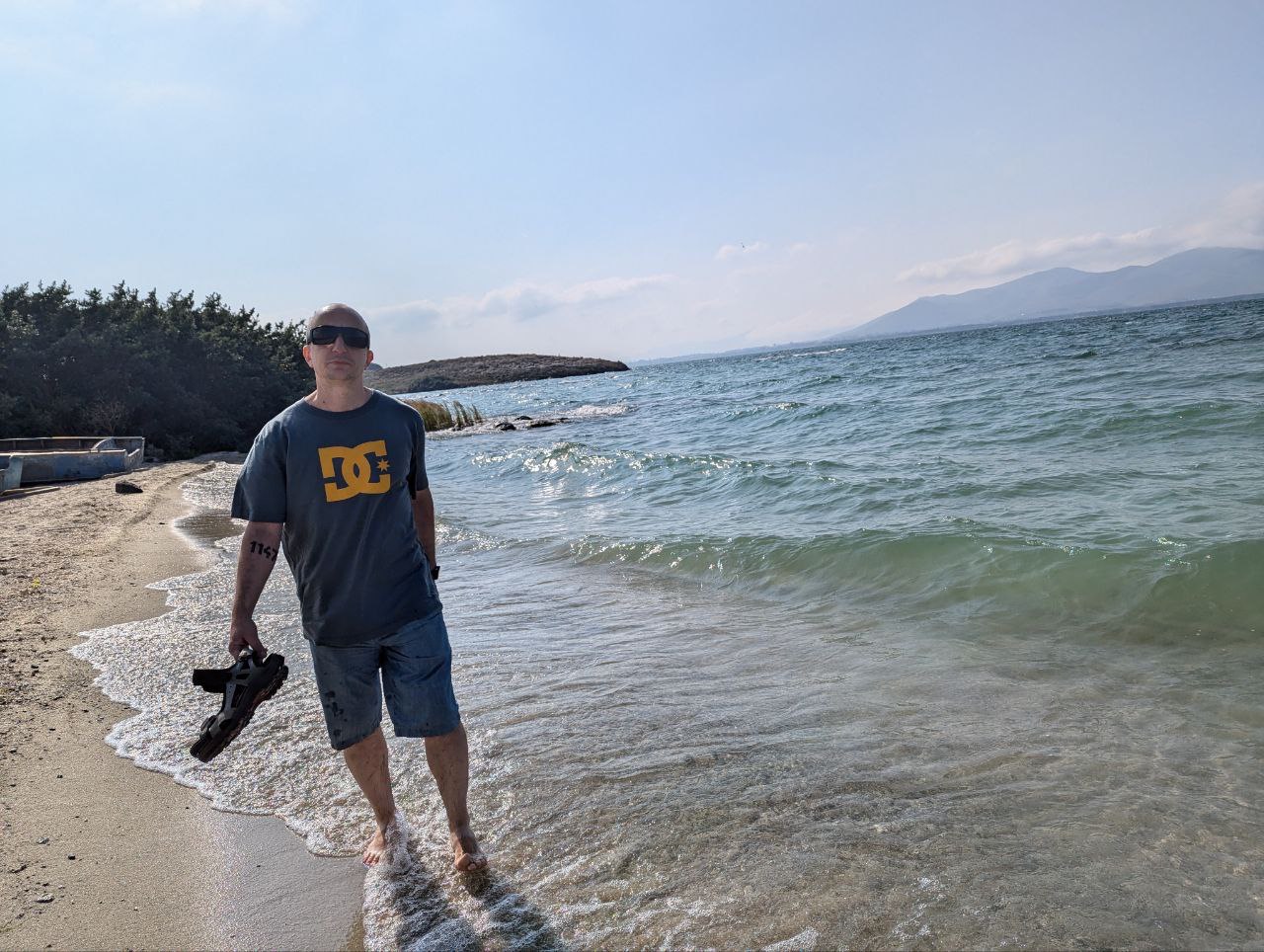
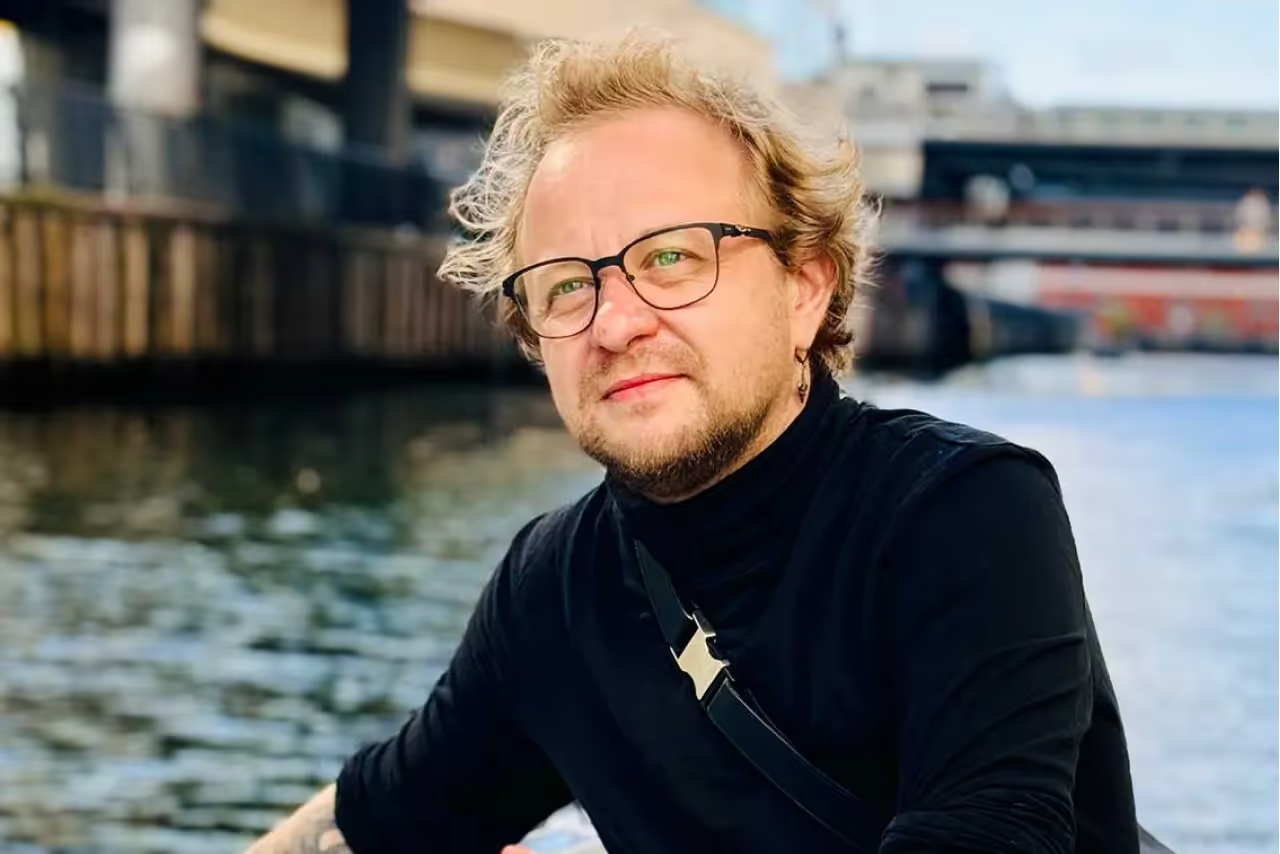
Kir Romanovskiy, VP of Design at Xsolla, a global video game commerce company, has spent the past few years hopping between 11 countries — from South Africa to South Korea. With the help of Relogate, he secured a UK Global Talent Visa and ultimately realized one thing: you can live wherever you want, as long as you’re open to change. In this story, Kir shares what it takes to choose a country, apply for a visa, and build a life abroad — and why London feels freezing even at +5°C.
I never meant to leave for long. At first it was a short work trip. Then another one. Then another. At some point, I realized the world is wide open, and it’s entirely possible to live in the places you’re drawn to — not just visit them. Life is one long journey, and change is just part of the ride. Every country brought a new experience. And with each new place, that experience became a little more global. At some point, the circumstances aligned, and it was clear: all paths are open.
My job allowed me to be anywhere — our team spans offices in Los Angeles, Kuala Lumpur, Seoul, Beijing, Hong Kong, Berlin. As long as I didn’t stray too far from the Asian time zone — where many of my colleagues and partners were — I could stay on the move. For a while, I was basically living on the road: from Cape Town to Malaysia, then wintering in Turkey, then heading to Seoul, then Thailand, and so on. Just two suitcases and a rolling itinerary.
Yet, however deeply that nomadic rhythm resonates within, a quiet yearning eventually stirs – a desire to finally set down those well-worn suitcases and declare, with a sigh of contentment, "Here, at last, is home." Not for a month or two. At least for a couple of years. The “forever tourist” feeling wears you down. And having a more permanent residence unlocks access to more visas — and more future destinations. Ironically, you need to stay in one place for a while to keep moving forward. That’s when I began thinking seriously: where do I actually want to live next?
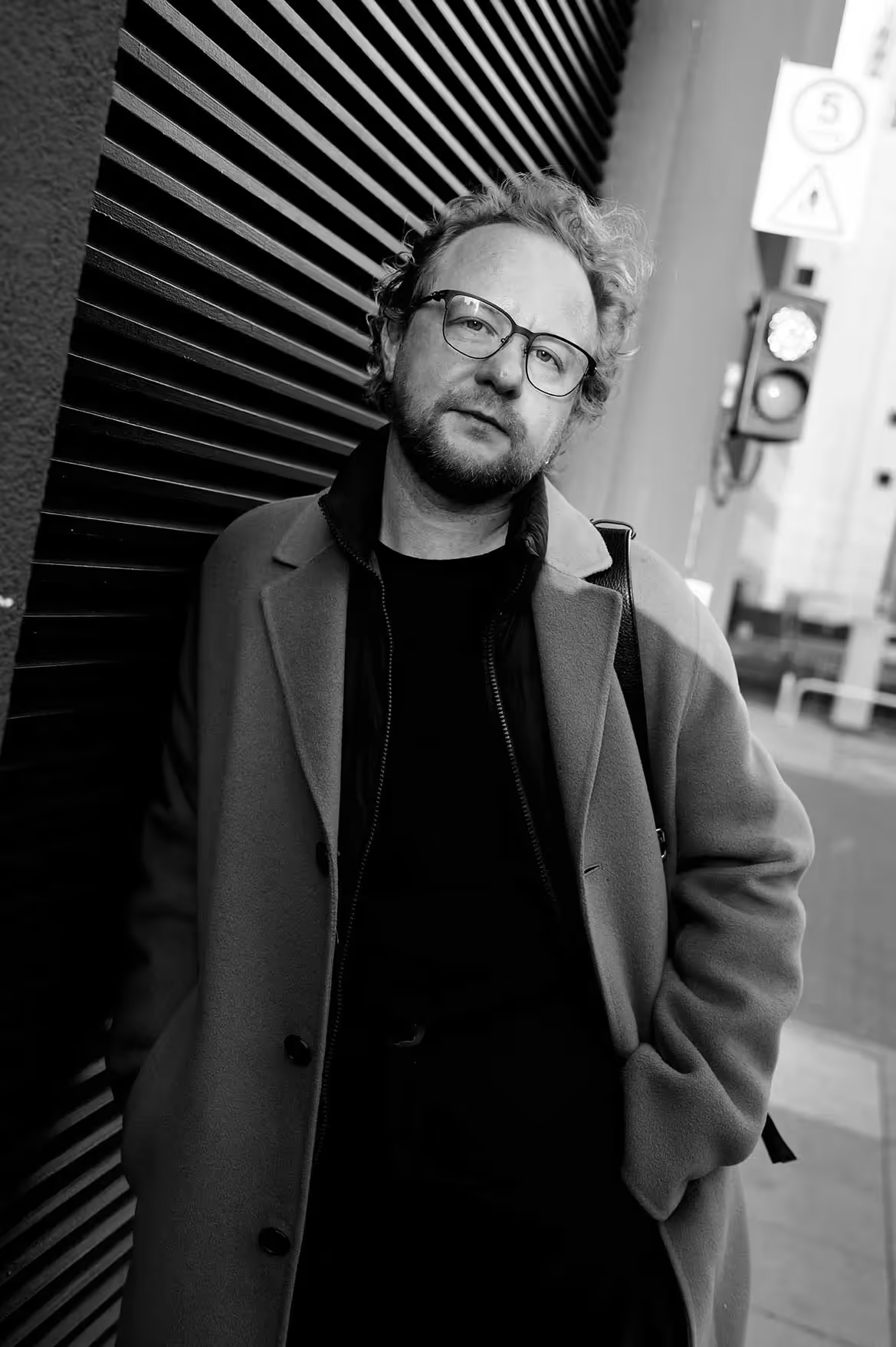
It wasn't just a random choice. When I first visited London as a tourist in 2014, something about the city really resonated with me. I didn't have a clear plan or understand what the draw was, but a whimsical thought popped into my head: "It would be so cool to live here someday." Afterwards, I traveled to many other countries, but London always stayed in the background as a potential "place of power."
When the time came to choose where to settle, I had almost no doubts. It felt more like an epiphany. Surprisingly, many of my colleagues, when they heard I'd moved to London, said: "But you've always wanted that!" Apparently, I really did talk about it quite a bit.

From a practical standpoint, London made perfect sense too. It’s perfectly positioned between all my work hubs — LA, Chicago, Hong Kong, Kuala Lumpur — and the time zone sits neatly in the middle. It has everything: infrastructure, culture, community, opportunities. This is a city where you can stay true to yourself and still keep growing.
Sure, I could’ve gone elsewhere. We have an office in Germany, and I considered applying for the Blue Card. But Berlin didn’t spark anything in me — it felt more like melancholy than excitement. London, on the other hand, felt like love. Unexplained at times, but persistent and real.
Of course I’d heard of the Global Talent visa — but it sounded complicated. I’m not the kind of person who enjoys paperwork, and the thought of diving into immigration bureaucracy triggered every procrastination instinct I have. But the idea of living in London was stronger. I started looking for ways to make it happen.
It was then that Relogate resurfaced in my mind. Knowing Roman Tsuper and trusting his expertise, I reached out. Our call was pivotal. After I outlined my background, his confident assessment – “You’ve got a solid case. We can make this work” – became the decisive moment. It was the catalyst to finally anchor myself, to trade the endless horizon for something more substantial.
I work at a global company, I’ve led major design projects with clear business impact — we’ve boosted conversions, improved product flows, driven growth. But when I first looked at my own experience, it felt scattered. Like a feeling that you haven’t quite found what to show.
That’s where Relogate stepped in. They helped me structure everything — what to highlight, how to present it, what kind of narrative to build. They guided me step by step, and that structure made all the difference.
The journey held some delightful surprises! Those recommendation letters I'd anticipated with some trepidation? Turns out, connecting with the right people made it surprisingly smooth. The "Go Global" dream truly ignited with enthusiastic endorsements pouring in from colleagues across the US, UK, South Korea, and Brazil – talk about feeling supported! I even unlocked a hidden talent for writing, finding I could articulate my experiences effectively and quickly. This whole visa process actually became an unexpected boost to my storytelling prowess. Okay, writing about myself was still a bit of a mental workout, but even that felt like a worthwhile challenge.
Honestly, the entire process wasn't the daunting ordeal I'd imagined. It even had moments of genuine fun! The key was simply staying focused and consistent, and that's pcisely what Relogate brought to the table, making the whole thing feel achievable and even exciting.
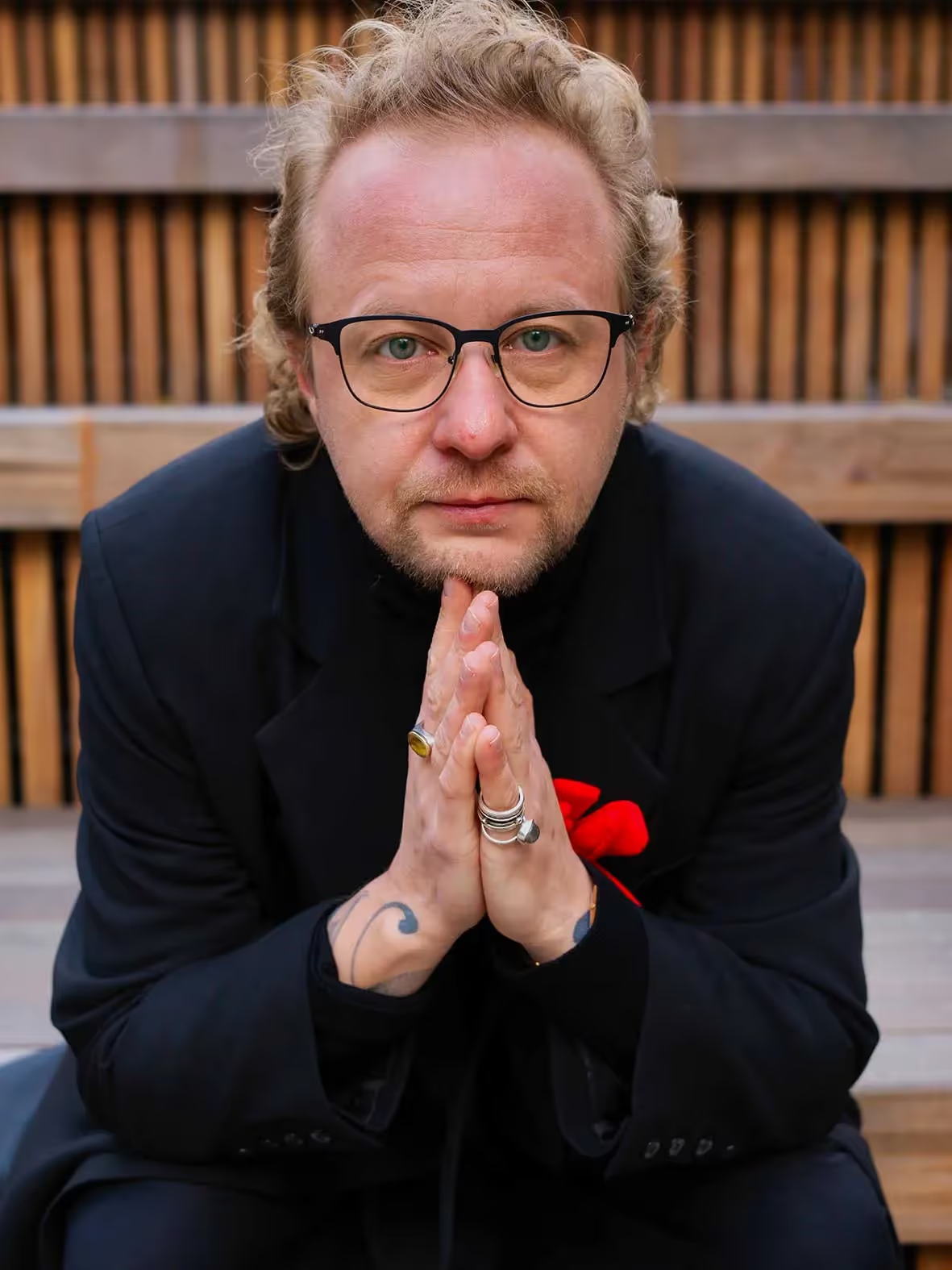
Here’s the fun part: my Global Talent application was approved just three days after submission. The not-so-fun part? The email never reached me. At the time, I was in Beijing. Then I flew back to Sri Lanka and waited. A week passed. Then another. Three weeks in, the folks at Relogate were more anxious than I was. They nudged me to reach out to Tech Nation — and sure enough, the approval had come through. It was sitting in my inbox the whole time. Naturally, I celebrated. I sprinted down the beach, waving my phone, rereading the PDF with trembling hands. I was ecstatic. But then came the surprisingly tricky bit: getting the visa sticker in my passport.
I decided to do it in Sri Lanka. It made sense — I was wintering there with friends and family, surfing and soaking up the sun. I also had business trips lined up in Kuala Lumpur and Beijing. Staying in Asia was the most logical move. I applied through a medical visa (you need 180 days of legal stay in the country to apply at the local UK consulate), submitted my documents, and then... came “the waiting crisis”.
Your application’s approved. You’re done. But somehow, waiting for that final email from the visa center becomes its own psychological marathon. You start checking your inbox ten times a day. You’re not worried about your case anymore — you’re just spiraling with “What ifs?” What if it’s rejected at the last minute? What if I filed something wrong? What if the email got lost again?
I later found out this kind of waiting anxiety is really common. Lots of people go through it. You’re not nervous about the outcome anymore — you’re just stuck in limbo, obsessively refreshing your inbox. It’s an emotional blind spot that no one warns you about. I had a pool at the villa and would walk circles in the water to calm down. Eventually, the visa came through. I booked a trip to see Everest — a symbolic shift from anxious waiting to real anticipation.
This part of the journey deserves more attention. It seems minor, but it’s surprisingly intense. Unexpected, irrational, and emotionally draining — and absolutely real.

Perhaps I wasn't the stereotypical Global Talent applicant – not your usual developer, scientist, or startup figure. I'm a design manager, leading teams and architecting digital products. But as we built my case, the undeniable truth shone through: design is business. And my track record proves it – strategic design delivers measurable ROI. When you improve the user journey, people convert more. When you build clear guidelines for communication, brand recognition grows. It all adds up — and directly affects revenue. Which means: it’s exactly the kind of impact the Global Talent visa is meant to reward.
That's where the brilliance of the Relogate team truly shone. They expertly crafted a compelling narrative around my design impact on core business metrics. We strategically highlighted concrete achievements: the 11% surge in payment conversion rates directly resulting from my redesign; the clear correlation between new feature launches and the company's bottom line; and how my design solutions demonstrably elevated user experience, translating directly into increased revenue. And it wasn't just talk – every claim was substantiated by robust data, strong partner testimonials, and significant press coverage.
The act of compiling all this information wasn't just about gathering facts; it was a process of re-evaluating and broadening my own professional understanding. I wasn’t raised to speak confidently about myself. We were taught to blend in, not stand out. This cultural contrast between collectivism and individualism became particularly apparent during this process, echoing my experiences when building international teams – a fascinating story for another time. To gain a more complete picture, I even asked colleagues to highlight aspects of my contributions I might have overlooked, like my ability to bridge the gap between business needs and design solutions. Those things seemed obvious, but the focus kept shifting to the details.
And this, by the way, is also an important part of the process: by applying for a visa, you learn to get more diverse facts, to make different slices of information, to form a coherent picture and package it in the right format. It's like working on a strategy, an activity that makes you see the bigger picture.
The completed application was more than just paperwork; it was a testament to my career. Seeing it all laid out so clearly was genuinely inspiring, even to me. It's a unique and incredibly motivating feeling.
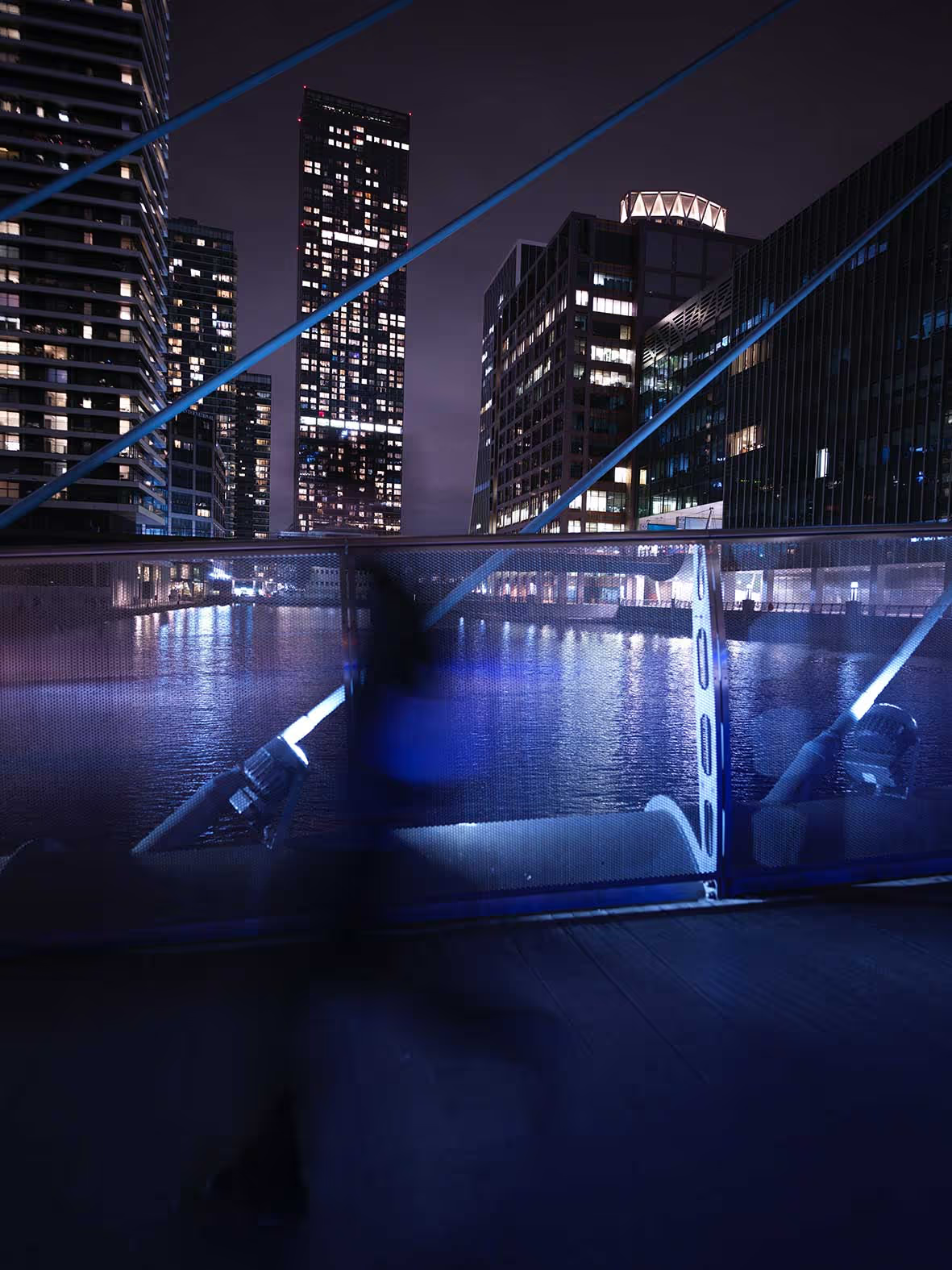
I’m still a bit euphoric about London. Maybe it’ll wear off, but for now, moving here feels like one of the best decisions I’ve made. Technically, I’ve been here less than a year — but it already feels familiar, like a city I’ve known for a long time.
London is a beautiful kind of chaos. It’s not about order — it’s about energy. Something is always happening. And there’s just… so much. People, museums, concerts, riverside walks, bridges, pop-up markets, airports, tourists with suitcases, layers of history. It’s a collision of cultures and languages. A modern-day Babylon.
Take Canary Wharf. From a distance, it looks like a typical business district. But the closer you look, the more layered it becomes. Next to the steel-and-glass towers, there’s a farm with goats and alpacas. A few stops away is Greenwich, with its palaces and parks. On the Isle of Dogs, birds swim through canals between skyscrapers, dodging barges and — I swear — a hot-tub boat full of smiling people. There’s an elevated light rail zipping by above your head, and down on the street, grandmas sell Chinese noodles. It’s a little surreal — kind of cyberpunk.
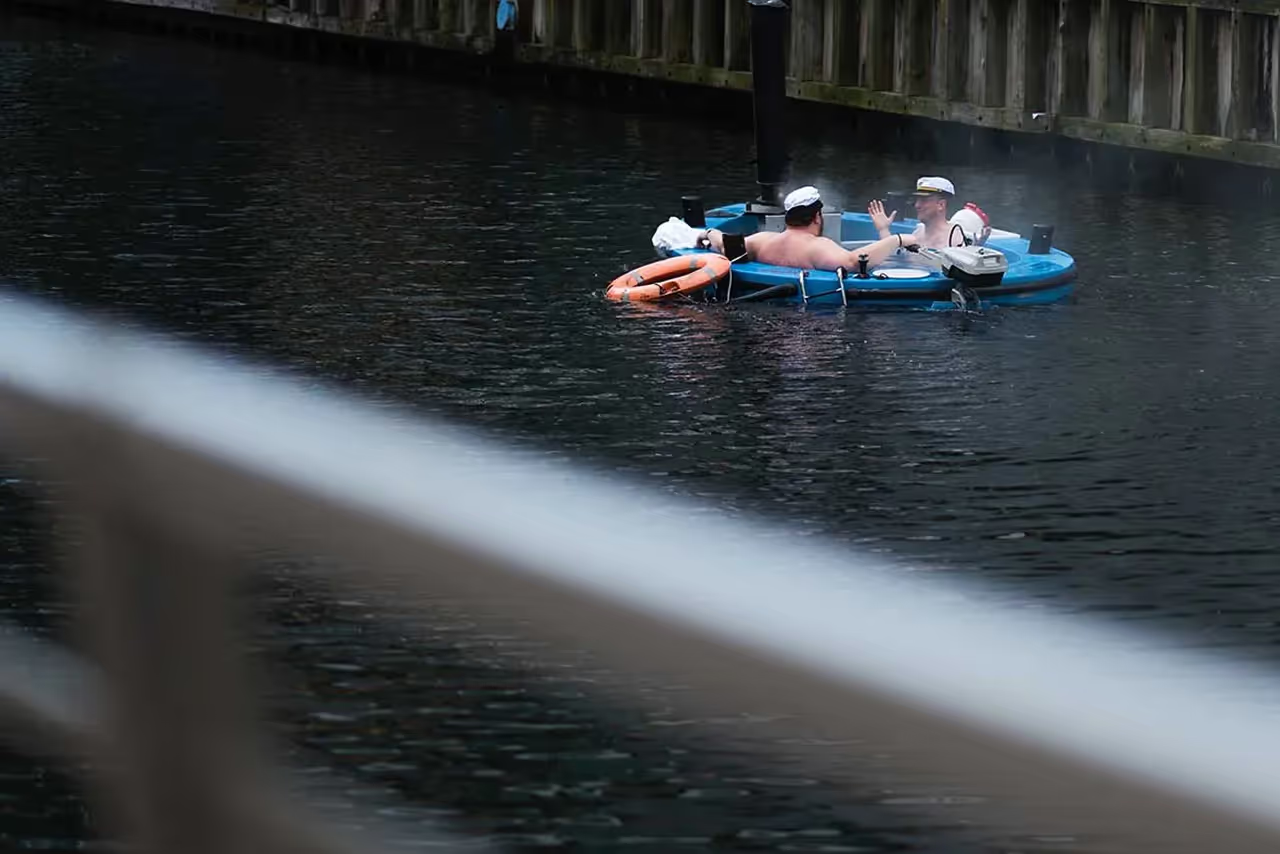
The British tend to side-eye the East End, but I’ve grown to love it. It’s well-connected, full of public space, and just the right amount of unhinged.
Finding a flat actually went pretty smoothly. I got lucky and found a place without an agent, which meant fewer options — but also fewer hoops to jump through. With agents, if you work remotely for a non-UK company, they often treat that as “no job,” and ask for six to twelve months of rent up front.
How long it takes to find a place depends on your expectations. In my case, the hardest part was choosing a neighborhood. I prepared early: once I started working on my visa, I flew to London just to walk around, explore different areas, and get a feel for where I might want to live. By the time I officially moved, I already had a short list and some local advice in hand.
A friend once joked about her own relocation process: “At first, I wanted to live in West London. Then came denial, anger, bargaining, depression… and finally, Canary Wharf.” I like to think I skipped a few of those stages. Though I do like the idea of living in different parts of the city over time.

I’ve been in London for less than a year. I’ve already met people — some old colleagues, some current ones, some friends-of-friends. There are Russians, there are mixed couples, there are Brits. Thanks to all these people and the support they’ve given, the transition has been pretty smooth. And I’m grateful for that. When I moved here with my two suitcases, I didn’t stop traveling — I just started doing it within one city. In less than a year, I’ve lived in four different flats across London and even spent some time in Edinburgh.
Do I call that full integration? No, probably not. And I don’t think I’m very objective about myself. It’s hard to compare the social life I had in Moscow to what’s here now — the context has shifted. Back in Kuala Lumpur, I’d bump into former colleagues on the street. In Istanbul, I’d run into friends by chance. In Bangkok, I found familiar faces without trying. In Moscow, getting from Sokol to Vykhino felt like a quest. Now I think nothing of flying from LA to London just to swap suitcases and head off to Colombo. At a café by the ocean, the waiter will still ask how my mom’s doing — and when she’s visiting again. The world didn’t shrink. It’s just that my boundaries moved.
Socializing abroad takes effort — and sometimes a bit of creativity. One friend started attending church meetings just to practice English and meet people. Another joined a local amateur football team. I know I need to give it more time — and probably get a little more inventive too.
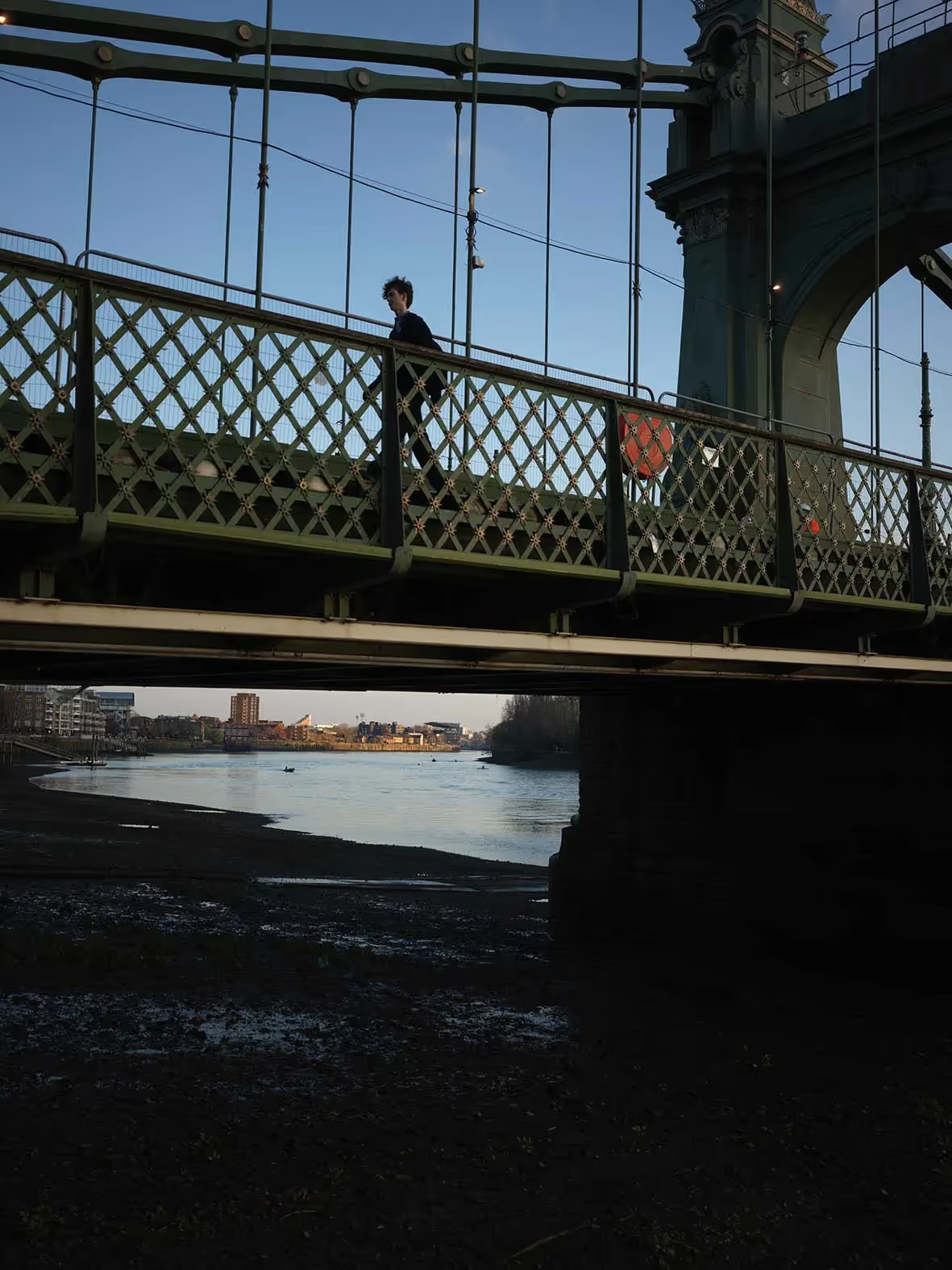
London winters are mild on paper — but I’ve never been colder anywhere else. It’s not even about the temperature. The insulation is poor, the heating is odd, the humidity seeps in, the wind gets everywhere. But even that doesn’t fully explain the low-level existential chill that settles into your bones. I’ve never shivered like this — not even in Seoul, where I nearly froze at +10°C once.
And then there’s British English. I’d been working in English for years, mostly with Americans. But when I arrived in London, I found myself not understanding half the things people were saying. One of the first realtors I spoke to had a thick Cockney accent — I just nodded and made a quick exit. That’s when I signed up for pronunciation classes.
Even within my team, I noticed it: British accents often throw people off. Sometimes colleagues would ask each other to “speak simpler.” I stopped feeling self-conscious when I heard a Brit complain that his British staff “don’t speak English” — meaning even he couldn’t understand them. That gave me a good laugh — and a lot of relief.
Eventually, you start to pick up on the subtleties. You notice how people react to your phrasing, and realize, “Ah, that came off too harsh.” You learn how to soften things. How this polite communication system works.
What I also appreciate about the UK is how little stress there is in daily life. Trains run late? No problem — here’s a refund. Metro station closed? Okay, I’ll walk. At first it’s mildly annoying, but then you find yourself slowing down. One day I realized I was crossing the street on a red light — except I wasn’t in London, I was in Tbilisi.
And then there’s this constant tone of trust — from the casual “my love” in shops to more serious interactions. Once, I’d ordered groceries but the payment failed. The delivery guy said, “No worries, just call them and pay now, it’s all good.” He handed me the bags and left. I stood there confused by how calm it all was.
Another time, I boarded a train without realizing I needed a special ticket for the destination. The conductor smiled and said, “Lucky you — tomorrow we roll out universal payment. Just tell the staff at the station, they might let you through.” He could’ve fined me. He didn’t.
And once, I left my coat in the wrong cloakroom at the opera. After the show, I found the doors locked and started panicking. But someone had already moved my coat to the open side — and handed it to me without a single question.
There’s something powerful in this default assumption of trust. The ability to make a mistake and calmly resolve it. No conflict, no raised voices even in a situation where you are obviously wrong, and this also greatly increases the level of inner calm.
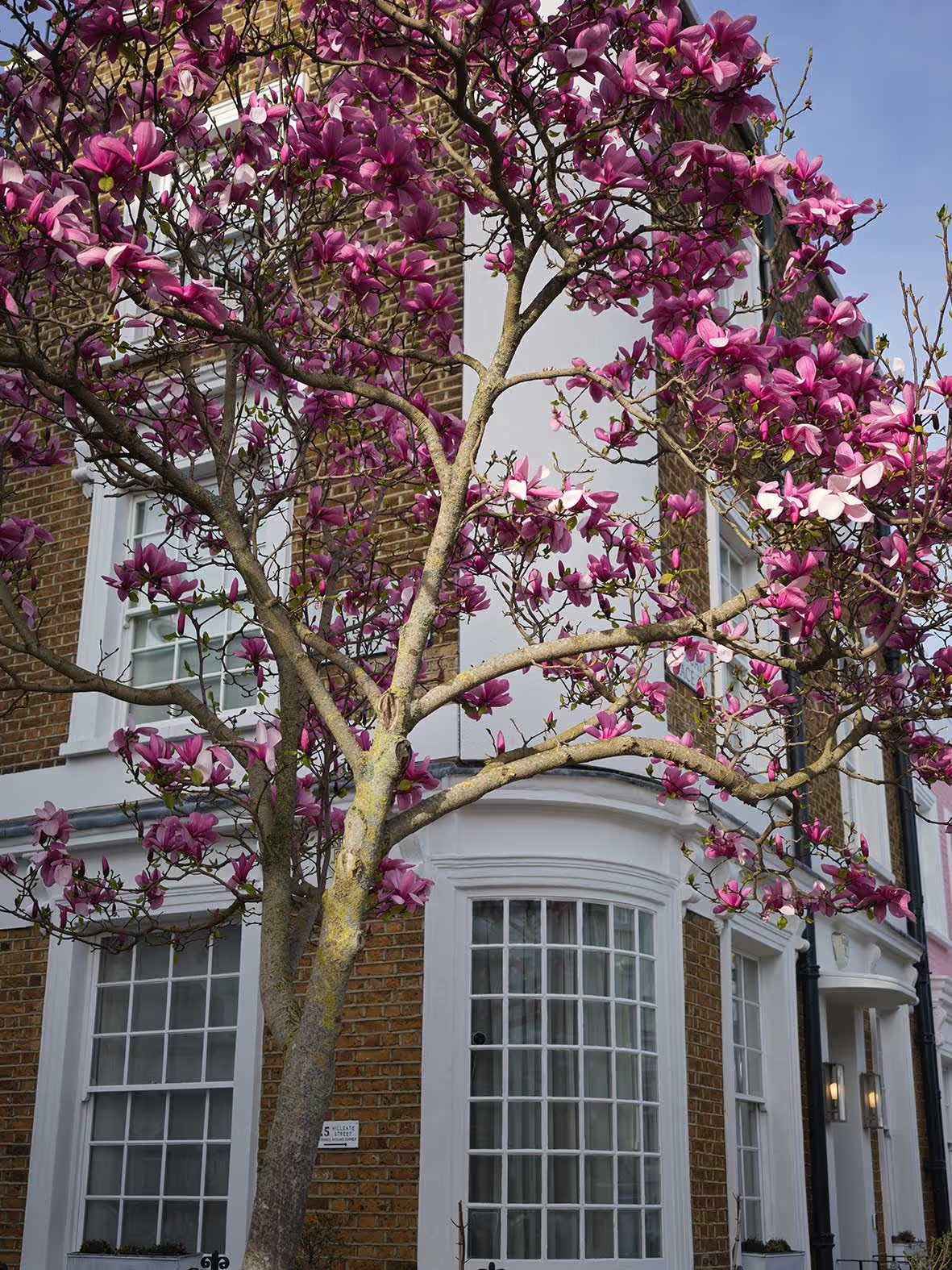
I love the idea of living in different countries. Not emigrating in the traditional sense — but choosing new places, collecting new experiences, expanding your perspective. The world is huge. Life is unpredictable. Right now, I’m in London, and it feels right. But if someday I feel like moving again — I will.
I know people who’ve lived in three, four countries. It’s not a dramatic life twist, just part of who they are. These days, it’s not uncommon to meet someone job hunting in Berlin while living in the U.S. There’s a new kind of global mindset growing — one that says: just be open to change. Everything else will fall into place.